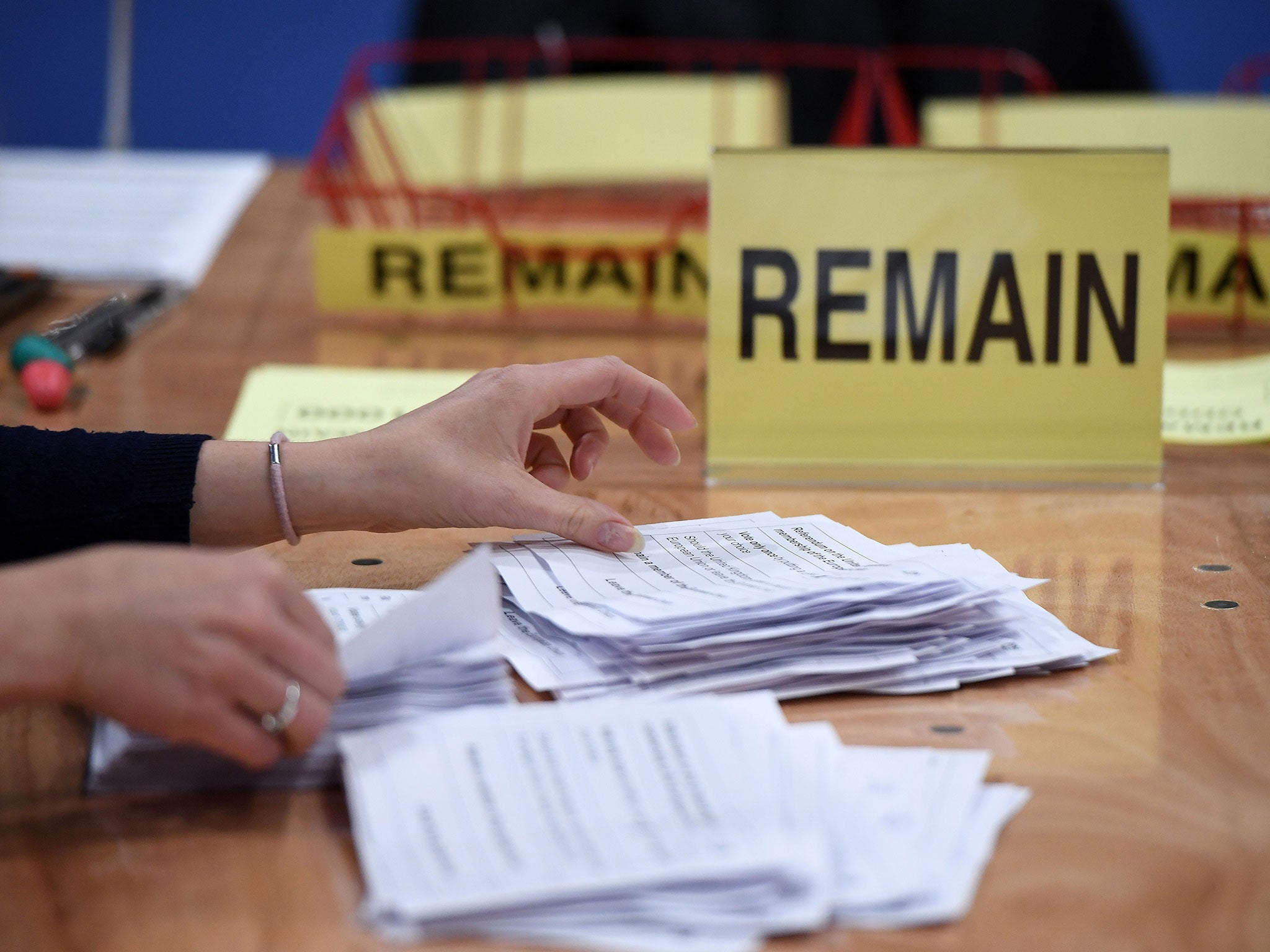EU referendum: Remain vote is no longer certain, says former head of YouGov
Four hours after YouGov poll put Remain four points ahead, victory starts to look far less certain for the pro-EU camp

Your support helps us to tell the story
From reproductive rights to climate change to Big Tech, The Independent is on the ground when the story is developing. Whether it's investigating the financials of Elon Musk's pro-Trump PAC or producing our latest documentary, 'The A Word', which shines a light on the American women fighting for reproductive rights, we know how important it is to parse out the facts from the messaging.
At such a critical moment in US history, we need reporters on the ground. Your donation allows us to keep sending journalists to speak to both sides of the story.
The Independent is trusted by Americans across the entire political spectrum. And unlike many other quality news outlets, we choose not to lock Americans out of our reporting and analysis with paywalls. We believe quality journalism should be available to everyone, paid for by those who can afford it.
Your support makes all the difference.The former President of YouGov has said “a Remain vote is no longer certain”, four hours after a YouGov poll released when voting stopped at 10pm put Remain four points ahead of Leave.
The 10pm YouGov poll put Remain on 52 per cent and Leave on 48. It helped prompt Ukip leader Nigel Farage to tell Sky News he thought Remain would “edge it”.
But as the Leave vote passed the one million mark ahead of Remain, Peter Kellner, the former president of YouGov said that despite the earlier poll, “a Remain vote is no longer certain.”
At about the same time, John Curtice, professor of politics at Stratchclyde University and one of the country’s foremost polling experts, told the BBC: “We are getting far more places where Leave is doing better than expected than places where Remain is better than expected.”
A further potential blow for the pro-EU camp came when it emerged Scotland and London – thought to be Remain heartlands – had among the lowest turnouts in the UK.
With 218 out of 382 turnouts declared, Scotland had the UK lowest turnout at 66.7 per cent compared to 76.6 per cent in South West England, the area with the highest turnout.
London had the UK’s third lowest turnout at 69.2 per cent. It is possible heavy overnight rain and flooding in some parts of the capital during polling day deterred or prevented some voters from going to polling stations.
In Kingston, south-west London, and Barking, in east London, polling stations had to close due to flooding.
The areas with the highest turnouts were South-West England (76.6 per cent), South-East England (76.4 per cent), Eastern England (74.9 per cent) and the West Midlands (73.9 per cent).
These turnouts were considerably lower than the 84.6 per cent recorded during the 2014 Scottish independence referendum, but significantly higher than the 64.5 per cent turnout for the 1975 EEC membership referendum.
Join our commenting forum
Join thought-provoking conversations, follow other Independent readers and see their replies
Comments